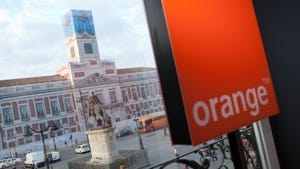Vodafone first to take advantage of spectrum sharing rulesVodafone first to take advantage of spectrum sharing rules
Vodafone has announced it has entered into a three-year agreement with StrattoOpencell to share the use of it 2.6 GHz spectrum assets to deliver connectivity in Devon.
October 2, 2019

Vodafone has announced it has entered into a three-year agreement with StrattoOpencell to share the use of it 2.6 GHz spectrum assets to deliver connectivity in Devon.
Following adjustments to spectrum license rules by Ofcom earlier this year, Vodafone becomes the first telco to share out the valuable airwaves. As part of the agreement, StrattoOpencell will deploy 4G small cells to deliver connectivity services to a holiday site in Devon.
“Vodafone has a long history of innovation, from sending the first text message to conducting the first 5G holographic call,” said Vodafone UK CEO Nick Jeffery. “We are delighted to become the first mobile company in the UK to share some of our spectrum to extend rural coverage.
“By offering some of our 4G spectrum to StrattoOpencell, we are helping to extend fast and reliable mobile network access for people in rural communities. Mobile connectivity in rural areas is just as important as it is for those in towns and cities, which is why we continue to work with others to help improve rural connectivity for all.”
Earlier this year, Ofcom made some amendments to allow for spectrum assets to be licensed off to third-parties by the telco which owns the airwaves. The changes are designed to more efficiently make use of the valuable assets. Vodafone is currently using the 2.6 GHz spectrum band in urbanised areas, though not in the rural communities. The high-capacity is attractive in the cities, though the shorter-range is less so when dealing with the rural areas.
This looks to be a very good example of proactive and forward-thinking regulation. If Vodafone is not making use of the spectrum in certain areas, why shouldn’t someone else? It is after all an asset which Vodafone is entitled to monetize in any (legal) way it sees fit.
Should a telco find a partner it would like to license its spectrum assets to, it has to seek permission from Ofcom detailing the band, location, bandwidth and power required. The regulator looks at it with a positive outcome in mind, though it will look for potential interference. The applications are dealt with on a case-by-case basis.
“Our new sharing approach aims to help more people access the airwaves they need to create local networks around the UK, including improving connections in rural areas,” said Philip Marnick, Group Director of Spectrum at Ofcom.
“Vodafone and StrattoOpencell are the first to take advantage of this. We look forward to seeing how others use our new spectrum access approach to support innovation and enable local communities to have better connections.”
Although this is only in Devon for the moment, the spectrum policy has been altered to enable more creative connectivity solutions in areas where fixed-connectivity is not an option. This might be difficult to reach places, or areas where permanent connectivity is not required. The success of the idea will be dependent on adoption, so it will be curious to see whether EE, O2 and Three elect to join the sharing scheme.
About the Author
You May Also Like










.png?width=300&auto=webp&quality=80&disable=upscale)


_1.jpg?width=300&auto=webp&quality=80&disable=upscale)